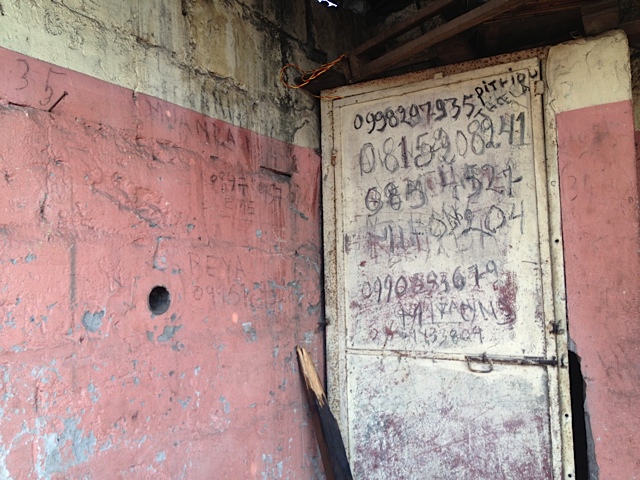On May 9 2017, Katrien Pype presented preliminary analysis of her research on CB radio communications in Kinshasa. The presentation was part of the seminar series of the (Belgian) Royal Academy of Overseas Sciences.
Here you can find the abstract of that presentation:
Living with Interference. Ethnographic Notes on Affect in Translocal Connectivity (Kinshasa)
Mobile phone technology constitutes only one, and a fairly recent, platform for connectivity with “elsewheres”. I focus here on radio phonie communication, a technology commonly known as citizen broad band radio, that has ensured long-distance dyadic communication in DR Congo since colonial times, and doubles as a money transfer agency. Recently, this outmoded communication platform has known an upsurge in Kinshasa in order to enable connectivity with regions in the former Bandundu and Equatorial Provinces, areas without cellular coverage. First, I examine phonie connectivity, and especially the affective dimensions of this long-distance interaction and link this tot the position of Kinois as “city-dwellers” trying to cope on the one hand with the socio-economic predicaments of life in an African metropole, and with claims –interpellations- made by relatives or intimate Others residing in the hinterland. Second, I highlight a material dimension to Kinois’ connectedness in order to acknowledge the role of technology in the shaping of modern sociality. Finally, I argue that the publicness of phonie talk – usually acted out in front of other phonie clients and the phonie operator, who contribute to the conversations – offers techniques for living with the interference from the urban into the rural and vice versa. By exploring “interference” as a technical and a social experience that people – not just in Kinshasa, but anywhere, where long-distance connectivity is lived – actively manage, the paper highlights the affective dissonances associated with the reduction of spatial distance through modern communication technologies, and thus brings nuance to the narratives of hope and anticipation, especially expectations for economic and material betterment, accompanying innovation in communication and the trope of global connectedness.
The material thus offers an interesting perspective on the co-habitation of so-called "old" and "new media"; while also bringing to the fore the longue duree of electronically mediated translocal connectivities.
Katrien is currently transforming the presentation into an academic article to be submitted to the journal of the Royal Academy of Overseas Sciences.











